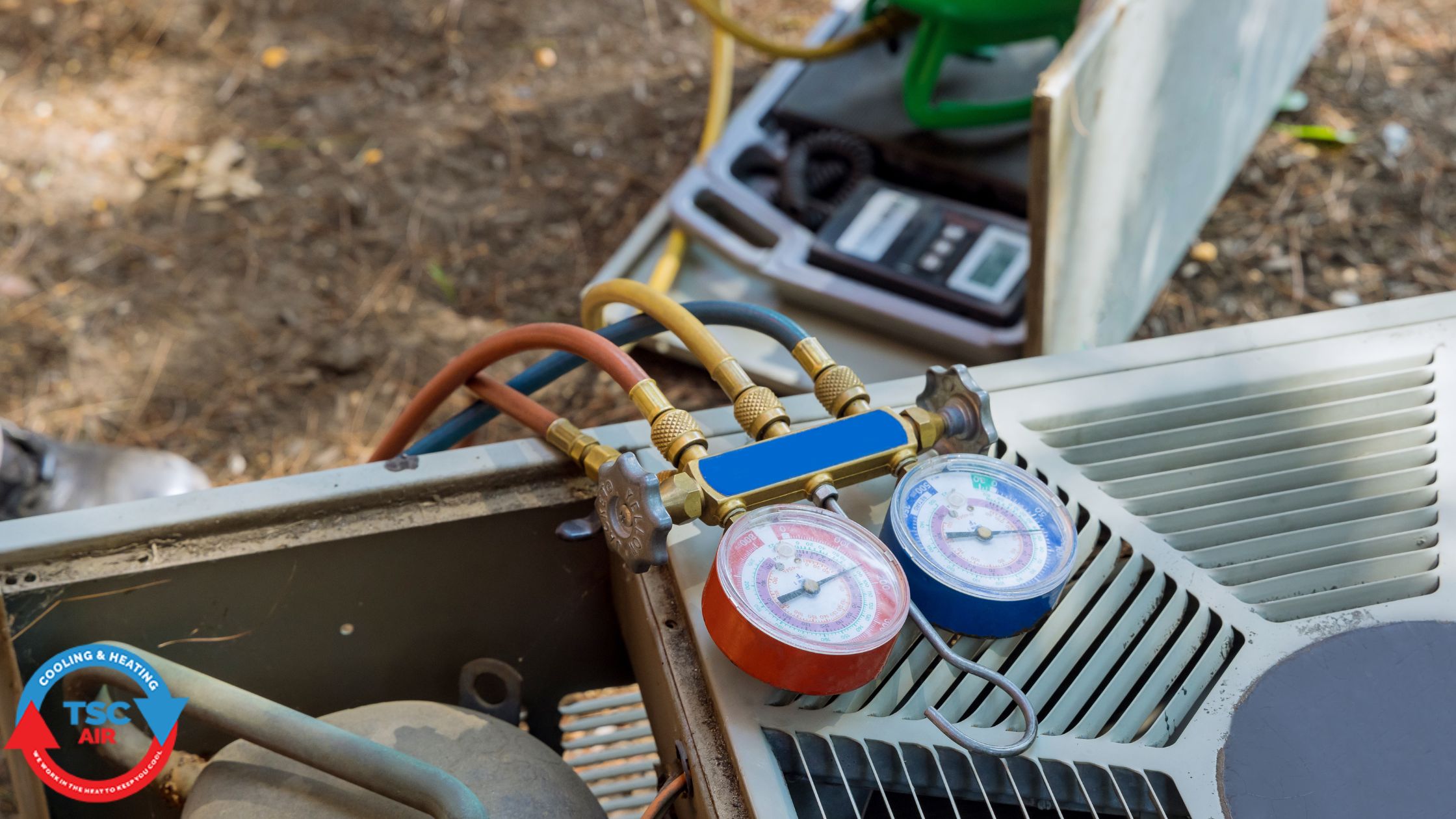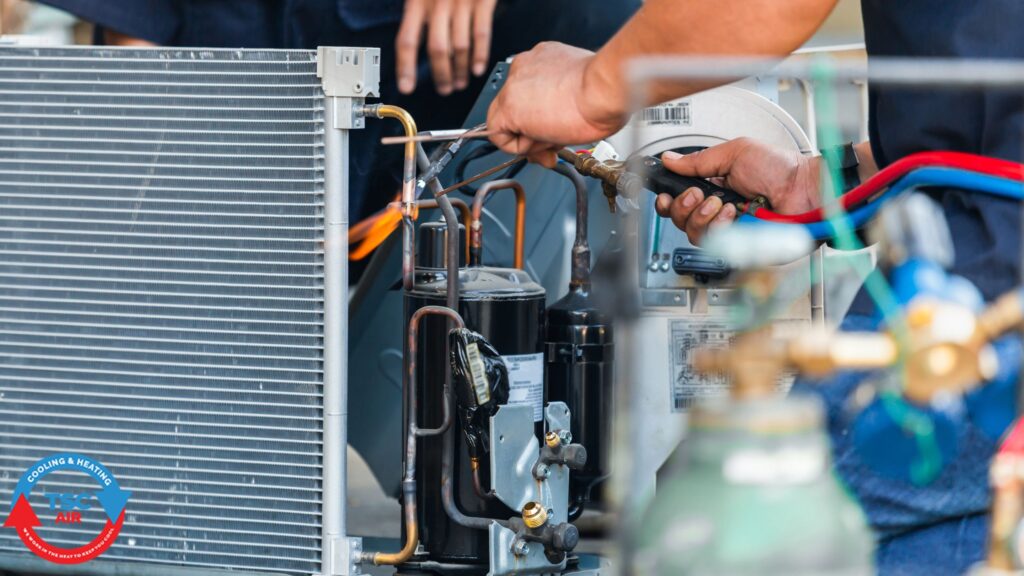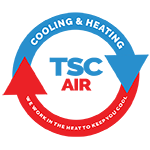Boosting HVAC Efficiency: Proven Tips for Lower Energy Bills

As temperatures in Phoenix continue to soar well into the fall, homeowners and businesses alike are grappling with skyrocketing energy costs. At TSC Air, we understand the unique challenges of Arizona’s arid climate, where HVAC systems work overtime to maintain comfortable indoor environments. That’s why we’re dedicated to helping you boost AC efficiency and optimize your overall HVAC efficiency through practical, proven strategies. Whether you’re considering HVAC repair in Arizona or exploring HVAC replacement options, implementing these tips can lead to substantial savings on your utility bills while extending the life of your system.

In this comprehensive guide, we’ll dive deep into actionable advice tailored specifically for Phoenix residents. From simple maintenance routines to advanced upgrades, our insights draw from years of experience serving the East Valley communities. By focusing on boost AC performance and reducing energy costs, you can achieve a more sustainable and cost-effective home cooling solution. Let’s explore how to make your HVAC system work smarter, not harder, in 2025.
Understanding the Importance of HVAC Efficiency in Arizona’s Climate
Arizona’s relentless heat waves, often exceeding 110 degrees Fahrenheit in Phoenix, place immense strain on HVAC systems. This not only drives up energy costs but also increases the likelihood of breakdowns requiring HVAC repair. According to recent data from the U.S. Department of Energy, inefficient HVAC systems can account for up to 50% of a household’s annual energy expenditure in hot climates like ours. At TSC Air, we’ve seen firsthand how neglecting HVAC efficiency leads to premature HVAC replacement, with average HVAC replacement costs ranging from $5,000 to $10,000 depending on system size and features.
To boost AC efficiency, it’s essential to start with a solid understanding of your system’s components. The evaporator coil, condenser unit, and ductwork all play critical roles in heat exchange and airflow. In dusty environments like Phoenix, debris accumulation can reduce efficiency by 20-30%, forcing your unit to consume more power. Regular inspections and cleanings are key to preventing this. For instance, we recommend scheduling bi-annual tune-ups to address issues early, avoiding costly HVAC repair in Arizona during peak summer months.
Moreover, integrating smart technologies can dramatically enhance HVAC efficiency. Programmable thermostats allow you to adjust temperatures based on occupancy patterns, potentially slashing energy costs by 10-15%. In our experience at TSC Air, clients who upgrade to Wi-Fi-enabled models report immediate improvements in comfort and savings. Combining these with zoning systems further refines control, ensuring energy isn’t wasted cooling unused spaces.
Proven Tips to Boost AC Efficiency and Reduce Energy Costs
One of the most effective ways to boost AC performance is through proper insulation and sealing. In Phoenix homes, where attics can reach 150 degrees, inadequate insulation causes cool air to escape, overburdening your HVAC system. We advise checking for gaps around windows, doors, and vents, then sealing them with weatherstripping or caulk. This simple step can improve HVAC efficiency by up to 25%, directly lowering energy costs.
Another tip involves maintaining clean air filters. Clogged filters restrict airflow, making your system work harder and increasing energy consumption. In Arizona’s dusty conditions, replace standard filters monthly or opt for high-efficiency pleated versions that last longer. At TSC Air, our technicians often find that neglected filters are the root cause of many HVAC repair calls, leading to compressor strain and higher HVAC replacement costs if not addressed promptly.
Shading your outdoor condenser unit is a low-cost hack to boost AC efficiency. Direct sunlight can raise the unit’s temperature, reducing its ability to expel heat effectively. Planting shrubs or installing awnings around the unit can lower operating temperatures by 10 degrees, translating to 5-10% savings on energy costs. However, ensure adequate airflow—keep plants at least two feet away to avoid blockages that might necessitate HVAC repair in Arizona.
For those with older systems, considering variable-speed blowers can revolutionize HVAC efficiency. Unlike single-speed models that run at full capacity constantly, variable-speed units adjust output to match demand, using 30-50% less energy. This upgrade is particularly beneficial in Phoenix, where temperature fluctuations between day and night are common. While initial HVAC replacement costs might seem daunting, the long-term reductions in energy costs often recoup the investment within 3-5 years.
Don Kaczmarek, one of the owners of TSC Air, emphasizes the value of proactive maintenance: “In our line of work, we’ve seen how small adjustments can lead to big savings. Boosting AC efficiency isn’t about overhauling everything—it’s about smart, targeted improvements that align with Arizona’s demanding climate.”
When to Consider HVAC Repair vs. HVAC Replacement
Deciding between HVAC repair and HVAC replacement is a common dilemma for Phoenix homeowners. If your system is under 10 years old and issues are minor—like a faulty capacitor or refrigerant leak—HVAC repair in Arizona is often the most economical choice. Our team at TSC Air specializes in diagnosing these problems quickly, using advanced tools to restore HVAC efficiency without unnecessary downtime.
However, if frequent repairs are becoming the norm, or if your unit is inefficient by modern standards (SEER rating below 14), it’s time to evaluate HVAC replacement. The average HVAC replacement cost in Phoenix varies based on factors like home size and ductwork condition, but high-efficiency models can qualify for rebates from utilities like APS or SRP, offsetting expenses. Upgrading to a system with R-32 refrigerant, for example, not only boosts AC efficiency but also aligns with environmental standards, reducing long-term energy costs.
Signs that HVAC replacement might be necessary include uneven cooling, unusual noises, or bills that keep climbing despite maintenance. In such cases, delaying action can lead to complete system failure during a heatwave, turning a planned upgrade into an emergency expense. At TSC Air, we offer free consultations to assess your needs, helping you weigh HVAC repair against replacement for optimal results.
Interestingly, maintenance parallels can be drawn from other industries. For instance, in the auto sector, recent statistics show that the United States Automotive Glass Replacement Market was valued at USD 5.2 Billion in 2024 and is projected to reach USD 7.8 Billion by 2033, growing at a steady rate due to increasing vehicle miles traveled and road hazards. This highlights the importance of timely repairs and replacements to avoid escalating costs, much like addressing HVAC efficiency issues before they compound.
Advanced Strategies for Maximizing HVAC Efficiency
To truly boost AC efficiency, consider integrating solar-powered attic fans. These devices expel hot air from your attic, reducing the heat load on your HVAC system and cutting energy costs by 20-30%. In sunny Phoenix, where solar potential is abundant, this eco-friendly addition pays for itself quickly through lower utility bills and potential tax incentives.
Duct cleaning and sealing are also crucial for HVAC efficiency. Over time, ducts accumulate dust and develop leaks, wasting up to 40% of conditioned air. Professional services from TSC Air use specialized equipment to remove contaminants and seal joints, ensuring efficient airflow. This is especially vital in Arizona, where allergens and particulates can exacerbate system strain, leading to more frequent HVAC repair.
Upgrading to energy-efficient windows can complement your HVAC system efforts. Low-E coatings reflect infrared light, keeping interiors cooler without over-relying on AC. While not a direct HVAC replacement, this holistic approach enhances overall home efficiency, further reducing energy costs.
Don Kaczmarek shares another insight: “We’ve helped countless clients in Phoenix transform their homes by focusing on HVAC efficiency. It’s rewarding to see bills drop while comfort rises—proof that strategic upgrades like boosting AC with modern tech make a real difference.”
Incorporating Smart Home Integration for Better HVAC Control
In 2025, smart home ecosystems offer unparalleled opportunities to boost AC efficiency. Devices like Google Nest or Amazon Echo integrate seamlessly with HVAC systems, allowing voice-controlled adjustments and AI-driven optimizations. For example, geofencing technology can preheat or precool your home based on your location, minimizing unnecessary runtime and slashing energy costs.
At TSC Air, we install and configure these systems, ensuring compatibility with your existing setup. This not only enhances HVAC efficiency but also provides diagnostic alerts for potential issues, preventing costly HVAC repair in Arizona. Data from smart thermostats can reveal usage patterns, guiding further improvements like adding humidity controls for Arizona’s dry air.
For larger properties, multi-zone systems divide your home into independent areas, each with its own thermostat. This precision cooling avoids overworking the unit, extending its lifespan and deferring HVAC replacement costs. Our experts at TSC Air customize these installations, factoring in Phoenix‘s microclimates for maximum efficiency.
The Role of Regular Maintenance in Preventing High HVAC Replacement Costs
Preventive maintenance is the cornerstone of sustained HVAC efficiency. Annual inspections catch refrigerant leaks, electrical faults, and wear on components before they escalate. In Phoenix, where systems run nearly year-round, skipping maintenance can double energy costs and halve equipment life.
Our TSC Air maintenance plans include thorough cleanings, lubrication, and performance tests, ensuring your system operates at peak efficiency. Clients often report 15-20% reductions in bills post-tune-up, underscoring the value in avoiding emergency HVAC repair.
When maintenance reveals irreparable damage, we guide you through HVAC replacement options, emphasizing models that boost AC with features like two-stage compressors for quieter, more efficient operation.
Exploring Energy-Efficient Incentives and Rebates in Phoenix
Phoenix residents can leverage various incentives to offset HVAC replacement costs. Federal tax credits under the Inflation Reduction Act provide up to $2,000 for high-efficiency systems, while local utilities offer rebates for SEER 16+ units. These financial boosts make upgrading more accessible, accelerating ROI through lower energy costs.
At TSC Air, we navigate these programs for you, ensuring eligibility and maximizing savings. Combining incentives with financing options, we make HVAC efficiency improvements feasible for all budgets.
Addressing Common Myths About HVAC Efficiency
A prevalent myth is that closing vents in unused rooms saves energy—but it actually disrupts airflow, straining the system and increasing energy costs. Proper zoning is the solution, not makeshift adjustments.
Another misconception: Bigger systems cool better. Oversized units cycle inefficiently, leading to humidity issues and higher HVAC repair needs. Sizing calculations are vital for optimal HVAC efficiency.
Secure Your Comfort and Savings Today
In summary, boosting HVAC efficiency in Phoenix requires a multifaceted approach, from routine maintenance to strategic upgrades. By implementing these proven tips, you can significantly reduce energy costs, minimize the need for HVAC repair in Arizona, and avoid premature HVAC replacement. At TSC Air, we’re committed to delivering top-tier solutions that keep your home cool and your wallet intact in 2025 and beyond.
Upgrade to R-32 Refrigerant for Superior Efficiency
Ready to take your HVAC efficiency to the next level? Consider transitioning to R-32 refrigerant, the future of efficient cooling. With a Global Warming Potential (GWP) of just 675—68% lower than R-410A—R-32 offers superior energy savings, using up to 10% less power while delivering excellent cooling capacity. At TSC Air, we specialize in installing systems with this eco-friendly refrigerant, helping you lower energy costs and reduce your environmental footprint without compromising performance.
Safety and ease of transition are key with R-32. Classified as mildly flammable (A2L), modern units incorporate leak detection sensors and ventilation features for secure operation. Our certified technicians handle everything from recovery to installation, ensuring compliance with local codes. Whether you’re facing HVAC repair or planning a full HVAC replacement, R-32’s single-component design makes it cost-effective and recyclable, aligning with global standards like the Kigali Amendment.
Don’t miss out on the benefits of R-32—contact TSC Air today for a consultation. Located at 1022 W 23rd St, Tempe AZ 85282, we’re here to serve the East Valley with expert service. Call us at 855-TSCAIR-5 or email info@tscair.com to schedule your upgrade and start saving on energy costs while enjoying reliable, sustainable cooling.
